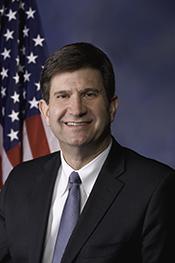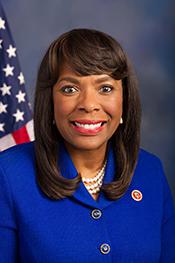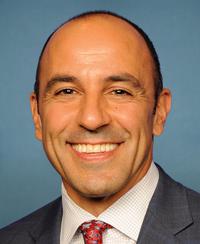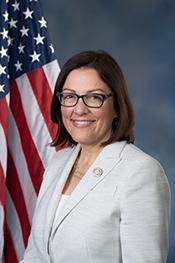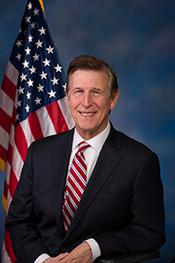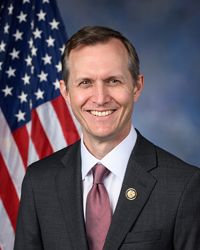9
17
17
Repealing Outdated and Unilateral Tariff Authorities Act
4/25/2025, 8:05 AM
Summary of Bill HR 2464
Bill 119 HR 2464, also known as the "To repeal section 338 of the Tariff Act of 1930" bill, aims to eliminate a specific section of the Tariff Act of 1930. Section 338 of this act currently allows the President of the United States to impose tariffs on imported goods in order to protect domestic industries.
The bill proposes to repeal this section, effectively removing the President's authority to impose tariffs for this purpose. Supporters of the bill argue that this section has been misused in the past, leading to trade disputes and retaliatory tariffs from other countries. They believe that repealing this section will promote free trade and prevent unnecessary trade conflicts.
Opponents of the bill, however, argue that removing this authority from the President could weaken the country's ability to protect domestic industries from unfair competition. They believe that tariffs can be an important tool in leveling the playing field for American businesses and workers. Overall, the bill has sparked debate among lawmakers and stakeholders about the role of tariffs in trade policy and the balance between protecting domestic industries and promoting free trade. It will be interesting to see how this bill progresses through Congress and what impact it may have on future trade relations.
The bill proposes to repeal this section, effectively removing the President's authority to impose tariffs for this purpose. Supporters of the bill argue that this section has been misused in the past, leading to trade disputes and retaliatory tariffs from other countries. They believe that repealing this section will promote free trade and prevent unnecessary trade conflicts.
Opponents of the bill, however, argue that removing this authority from the President could weaken the country's ability to protect domestic industries from unfair competition. They believe that tariffs can be an important tool in leveling the playing field for American businesses and workers. Overall, the bill has sparked debate among lawmakers and stakeholders about the role of tariffs in trade policy and the balance between protecting domestic industries and promoting free trade. It will be interesting to see how this bill progresses through Congress and what impact it may have on future trade relations.
Congressional Summary of HR 2464
Repealing Outdated and Unilateral Tariff Authorities Act
This bill repeals the statute that directs the President to impose new or additional tariffs on articles produced by, or imported on the vessels of, foreign countries that discriminate against U.S. commerce.
Read the Full Bill
Current Status of Bill HR 2464
Bill HR 2464 is currently in the status of Bill Introduced since March 27, 2025. Bill HR 2464 was introduced during Congress 119 and was introduced to the House on March 27, 2025. Bill HR 2464's most recent activity was Referred to the House Committee on Ways and Means. as of March 27, 2025
Bipartisan Support of Bill HR 2464
Total Number of Sponsors
5Democrat Sponsors
5Republican Sponsors
0Unaffiliated Sponsors
0Total Number of Cosponsors
22Democrat Cosponsors
22Republican Cosponsors
0Unaffiliated Cosponsors
0Policy Area and Potential Impact of Bill HR 2464
Primary Policy Focus
Alternate Title(s) of Bill HR 2464
To repeal section 338 of the Tariff Act of 1930.
To repeal section 338 of the Tariff Act of 1930.
Comments

Cain Logan
487
8 months ago
I'm not too sure about this one, seems like it could have some unintended consequences. Gonna have to look into it more before forming a solid opinion.
Sponsors and Cosponsors of HR 2464
Latest Bills
National Defense Authorization Act for Fiscal Year 2026
Bill S 1071December 13, 2025
Enduring Justice for Victims of Trafficking Act
Bill S 2584December 13, 2025
Technical Corrections to the Northwestern New Mexico Rural Water Projects Act, Taos Pueblo Indian Water Rights Settlement Act, and Aamodt Litigation Settlement Act
Bill S 640December 13, 2025
Incentivizing New Ventures and Economic Strength Through Capital Formation Act of 2025
Bill HR 3383December 13, 2025
BOWOW Act of 2025
Bill HR 4638December 13, 2025
Northern Mariana Islands Small Business Access Act
Bill HR 3496December 13, 2025
Wildfire Risk Evaluation Act
Bill HR 3924December 13, 2025
Energy Choice Act
Bill HR 3699December 13, 2025
ESTUARIES Act
Bill HR 3962December 13, 2025
Improving Interagency Coordination for Pipeline Reviews Act
Bill HR 3668December 13, 2025
